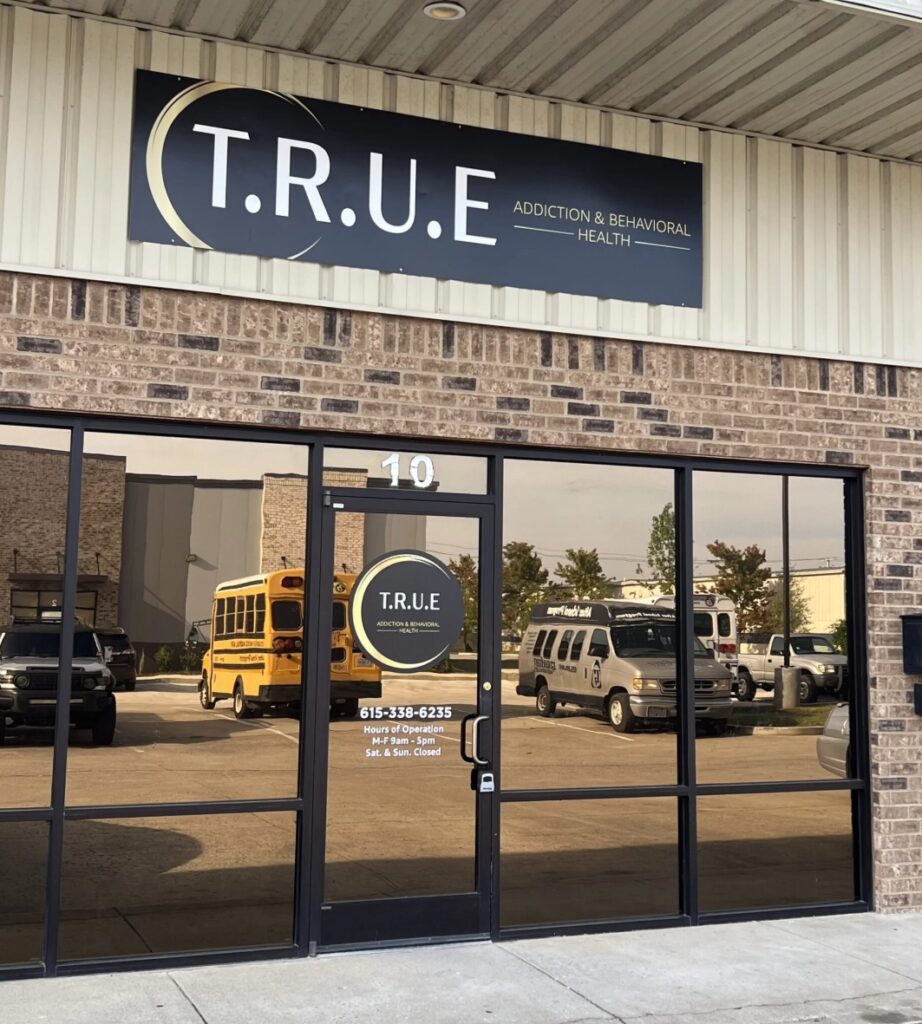
Table of Contents
Understanding Addiction Relapse
Addiction relapse signifies a critical and complex phenomenon in the journey of recovery from substance use disorders or behavioral addictions. It refers to the return to addictive behaviors or substance use after a period of abstinence. Relapse is not merely a failure to maintain sobriety; it often highlights the intricate interplay of psychological, environmental, and physiological factors that influence an individual’s recovery process. Understanding the nature of relapse, its mechanisms, and the stages involved is essential for developing effective strategies for prevention and intervention.
At the core of addiction is a profound alteration in brain chemistry that affects impulse control, decision-making, and emotional regulation. When an individual with an addiction achieves a period of sobriety, these neurological pathways can still be sensitized to triggers associated with the substance or behavior. External stimuli, such as high-stress situations, environmental cues, or social pressures, may prompt cravings that can culminate in relapse. Moreover, the psychological aspects of addiction, including co-occurring mental health disorders, can intensify these cravings, making the risk of relapse more pronounced.
The relapse process is often conceptualized in stages. Initially, individuals may experience emotional relapse, where feelings of stress, anxiety, or depression emerge without immediate substance use. This emotional turmoil can precede more overt signs of a potential relapse, such as a mental relapse, marked by thoughts of using again and fantasizing about the substance or behavior. Finally, the actual act of returning to the addictive behavior or substance use signifies a full-blown relapse. These stages suggest that relapse is not an abrupt event but rather a gradual decline, underscoring the importance of early intervention.
Preventing relapse requires a multifaceted approach. Comprehensive treatment programs should incorporate behavioral therapies, counseling, and support groups that address not only the addiction itself but also the underlying psychological issues. Developing coping strategies and building a strong support network are vital components of sustaining long-term recovery. Individuals must learn to recognize their triggers and develop skills to navigate high-risk situations effectively.
Addiction relapse is a multifactorial challenge that individuals in recovery face. An understanding of its complexities enables healthcare professionals, advocates, and individuals struggling with addiction to devise more effective treatment plans. Emphasizing education, support, and proactive coping strategies can significantly enhance the prospects for sustained recovery, turning relapse from a setback into an opportunity for growth and resilience.
Understanding a Mental Health Relapse

A mental health relapse is a term that refers to the re-emergence of symptoms or deterioration in functioning following a period of improvement or stability in an individual’s mental health condition. It is a significant concern in the management of mental health disorders, including anxiety, depression, bipolar disorder, and schizophrenia, among others. Understanding a relapse involves comprehensively recognizing its causes, implications, and potential strategies for prevention and recovery.
Relapses may occur due to a variety of factors, including stressors, lifestyle changes, or insufficient adherence to treatment regimens. For instance, an individual previously stabilizing in their mental health may encounter overwhelming stress from personal relationships or work obligations, which can trigger the return of symptoms. Additionally, discontinuation or irregularity in medication can lead to a resurgence of previously managed symptoms, as the brain’s neurochemical balance may be disrupted. This highlights the critical importance of consistent treatment, whether pharmacological, therapeutic, or lifestyle-related, in maintaining mental health stability.
The implications of a mental health relapse can be profound. An individual experiencing a relapse may suffer from a resurgence of debilitating symptoms, such as mood swings, anxiety, or psychotic episodes, resulting in impairment in daily functioning. Relationships, employment, and overall quality of life may be significantly affected during this phase. Furthermore, relapses can contribute to a cycle of fear and hopelessness, as individuals may begin to doubt their ability to manage their condition, potentially leading to increased isolation or avoidance of treatment.
Preventing a relapse involves proactive strategies that encompass a holistic approach to mental health care. Individuals should be encouraged to develop a strong support network, including family, friends, and mental health professionals, who can provide understanding and encouragement during challenging times. Staying engaged with therapeutic interventions, such as cognitive-behavioral therapy or mindfulness practices, can also be beneficial in reinforcing coping strategies. Furthermore, self-care practices—such as maintaining regular exercise, healthy nutrition, and sufficient sleep—play a vital role in stabilizing mental health.
A mental health relapse represents a complex interplay of psychological and biological factors that warrant careful consideration in the framework of mental health care. Understanding its nature, recognizing warning signs, and implementing preventive strategies are essential in mitigating the risk of relapse and fostering resilience in individuals with mental health conditions. Committed engagement in treatment and supportive relationships can significantly enhance recovery prospects and long-term stability.

Relapse Prevention for Addiction
Relapse prevention is a pivotal aspect of addiction recovery, encompassing strategies designed to help individuals maintain sobriety and prevent setbacks. Understanding relapse as a process rather than a single event is crucial; it involves a series of psychological and behavioral changes that can culminate in the return to substance use. Effective relapse prevention integrates a comprehensive understanding of triggers, coping mechanisms, and lifestyle modifications that empower individuals to navigate the complexities of recovery.
One of the primary elements of relapse prevention is the identification of triggers—situations, emotions, or contexts that precipitate cravings for the substance. Triggers can be categorized into three types: internal, external, and fleeting. Internal triggers include emotional states such as anxiety, sadness, or boredom, while external triggers may involve environments, social situations, or individuals associated with past substance use. Understanding these triggers allows individuals to devise specific strategies to avoid or cope with them.
Coping strategies are essential tools within a relapse prevention plan. Techniques such as cognitive-behavioral therapy (CBT) can help individuals reshape their thoughts and behaviors regarding substance use. CBT encourages individuals to recognize and counter negative thought patterns, thereby reducing susceptibility to relapse. Moreover, mindfulness practices, including meditation and breathing exercises, can assist individuals in cultivating awareness of their thoughts and feelings, helping them respond to cravings in a non-reactive manner.
Lifestyle changes also play a crucial role in sustaining recovery. Building a robust support network comprising family, friends, and fellow recovering individuals has been shown to enhance resilience against relapse. Engaging in positive activities, such as exercise, hobbies, and community involvement, fosters a sense of purpose and fulfillment, distancing individuals from the void often filled by substance use. Furthermore, maintaining consistent engagement with therapeutic resources, such as counseling and support groups like Alcoholics Anonymous or Narcotics Anonymous, provides ongoing encouragement and accountability.
Relapse prevention is a multifaceted approach that is vital for sustaining long-term recovery from addiction. By identifying triggers, employing effective coping strategies, and making meaningful lifestyle changes, individuals can navigate the challenges of sobriety more effectively. Recognizing that relapse can be a part of the recovery journey, rather than a definitive failure, fosters a mindset of resilience. Ultimately, the integration of these strategies constitutes a proactive framework that supports individuals in achieving and maintaining lasting sobriety.
Relapse Prevention for Mental Health
Relapse prevention in mental health refers to a set of strategies designed to reduce the likelihood of the recurrence of psychological disorders after an individual has achieved a period of stability or remission. This concept is particularly critical for conditions such as depression, anxiety disorders, bipolar disorder, and substance use disorders, wherein the risk of relapse poses significant challenges not only to individual well-being but also to societal healthcare systems.
The framework of relapse prevention involves a comprehensive understanding of the triggers and early warning signs associated with mental health crises. Central to effective relapse prevention is the development of a personalized relapse prevention plan. Such a plan typically includes strategies for identifying high-risk situations, coping mechanisms for addressing potential triggers, and resources for support. By empowering individuals with skills to recognize early signs of impending relapse, they can intervene proactively to mitigate the worst effects of their conditions.
One evidence-based approach to relapse prevention is cognitive behavioral therapy (CBT), which equips individuals with techniques to alter unhelpful thinking patterns and behaviors. CBT not only aids in managing symptoms during stable periods but also enforces resilience by fostering adaptive thought processes when faced with challenges. Additionally, psychoeducation plays a vital role in relapse prevention by educating individuals and their families about the nature of their mental health conditions, thereby fostering a supportive environment that encourages adherence to treatment plans.
Group therapy and peer support networks also prove beneficial in relapse prevention strategies. Engaging with others who have experienced similar challenges provides invaluable emotional support and creates a sense of belonging. Furthermore, these interactions can reinforce accountability and commitment to ongoing treatment regimens, thereby reducing isolation—a common precursor to relapse in mental health.
Medication management remains a cornerstone of prevention strategies, particularly for individuals diagnosed with severe mental health conditions. Adherence to prescribed regimens can significantly diminish the risk of relapse; however, it requires consistent monitoring and communication between healthcare providers and patients. The integration of telehealth services has further enhanced accessibility to care, allowing for timely interventions that may preempt relapse.
Relapse prevention for mental health is a multifaceted approach that combines awareness, education, therapeutic interventions, and support systems. A proactive focus on relapse prevention ensures that individuals can maintain their mental health stability and ultimately lead fulfilling lives. Moreover, it underscores the importance of ongoing research and the refinement of strategies to enhance the effectiveness of relapse prevention efforts in diverse populations.

Judgement Free Treatment at TRUE for Relapse from Mental Health or Substance Abuse
In the realm of addiction recovery and mental health treatment, the journey is often fraught with challenges, setbacks, and, unfortunately, relapses. While these occurrences are frequently stigmatized and perceived as failures, a more compassionate understanding is necessary to facilitate effective healing. TRUE Addiction and Behavioral Health embodies this ethos with its judgment-free treatment approach, specifically tailored for individuals grappling with addiction relapses or mental health crises.
Relapse should be viewed not as a definitive failure but as a potential learning opportunity within the broader context of recovery. TRUE Addiction and Behavioral Health adopts this perspective, recognizing that the path to recovery is seldom linear. Individuals may find themselves facing unexpected triggers or compounding stressors, leading to momentary lapses in their hard-fought progress. It is within this nuanced understanding that TRUE Addiction and Behavioral Health excels, offering a supportive environment where clients can feel safe to address their setbacks without fear of judgment or repercussion.
Central to the treatment philosophy at TRUE Addiction and Behavioral Health is the concept of empathy and validation. Professionals at this facility are trained to approach clients with understanding, fostering an atmosphere where individuals feel respected and heard. This is particularly crucial during moments of relapse, when clients might experience feelings of guilt, shame, and isolation. By creating a space free from judgment, TRUE Addiction and Behavioral Health empowers individuals to openly discuss their experiences and emotions, thereby laying the groundwork for effective healing and recovery strategies.
Moreover, the comprehensive care model at TRUE Addiction and Behavioral Health includes evidence-based therapeutic interventions and integrative holistic practices. This multifaceted approach considers not only the biological and psychological aspects of addiction but also the environmental and social factors contributing to relapse. Clients receive personalized treatment plans that evolve to meet their changing needs, particularly after a relapse. Such adaptability ensures that individuals feel continuously supported and equipped to confront and understand their challenges.
TRUE Addiction and Behavioral Health’s commitment to judgment-free treatment represents a progressive and compassionate approach to addiction recovery and mental health care. By reframing relapse as an opportunity for growth and learning rather than a setback, the facility fosters resilience and hope in its clients. Ultimately, this supportive environment not only enhances recovery outcomes but also contributes to a broader societal shift towards understanding and compassion in the realm of mental health and addiction treatment.
In Conclusion
Ongoing education about mental health and addiction can empower individuals with the knowledge to recognize early warning signs of relapse. It is imperative to cultivate self-compassion and understand that setbacks can lead to important lessons. Community resources, such as hotlines and workshops, are invaluable for providing immediate support. Ultimately, a comprehensive approach that encompasses emotional support, education, and professional guidance can significantly reduce the likelihood of relapse and promote long-term recovery.
If you or someone you know is struggling with substance abuse or a mental health issue, contact TRUE today to get started on the path to long-term successful recovery. TRUE is a premier provider of addiction and mental health services located in Tennessee. TRUE offers the most comprehensive menu of services for people in need of Tennessee mental health treatment and for those struggling with substance use disorder.
Verify Your Insurance Online
We are here to help. Contact us today and get the answers you need to start your journey to recovery!
